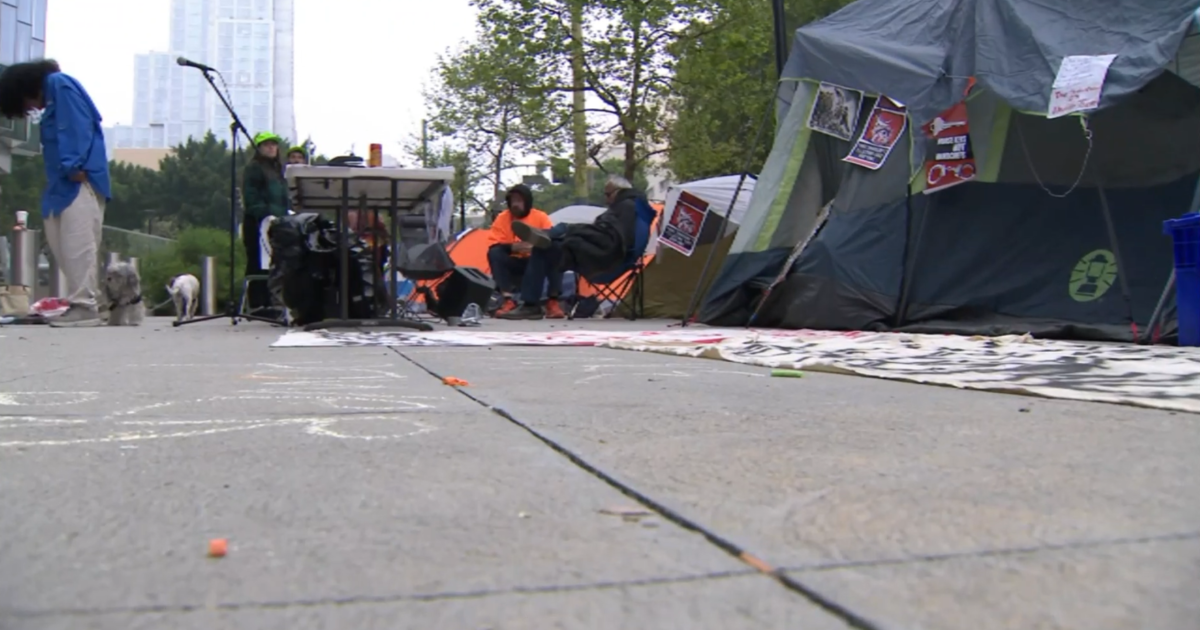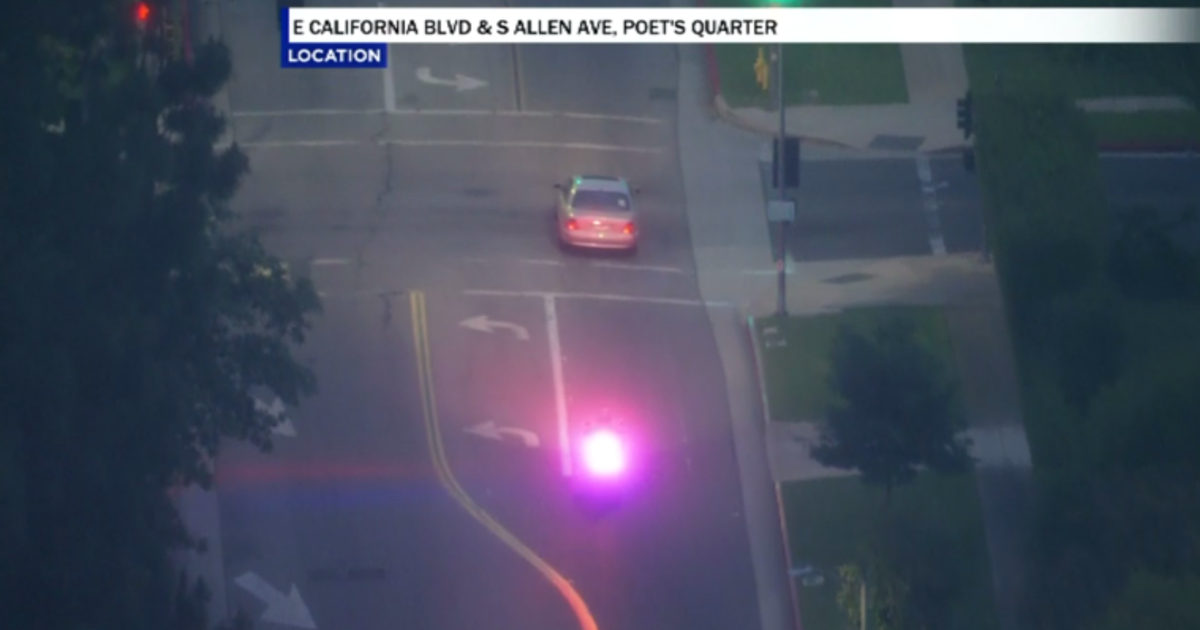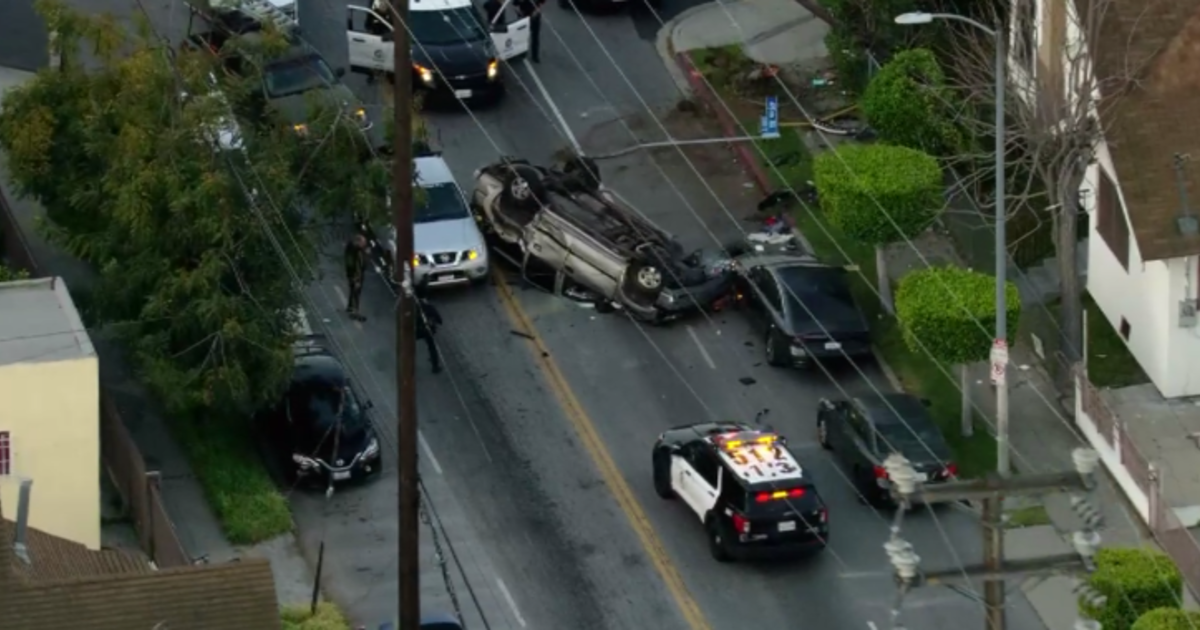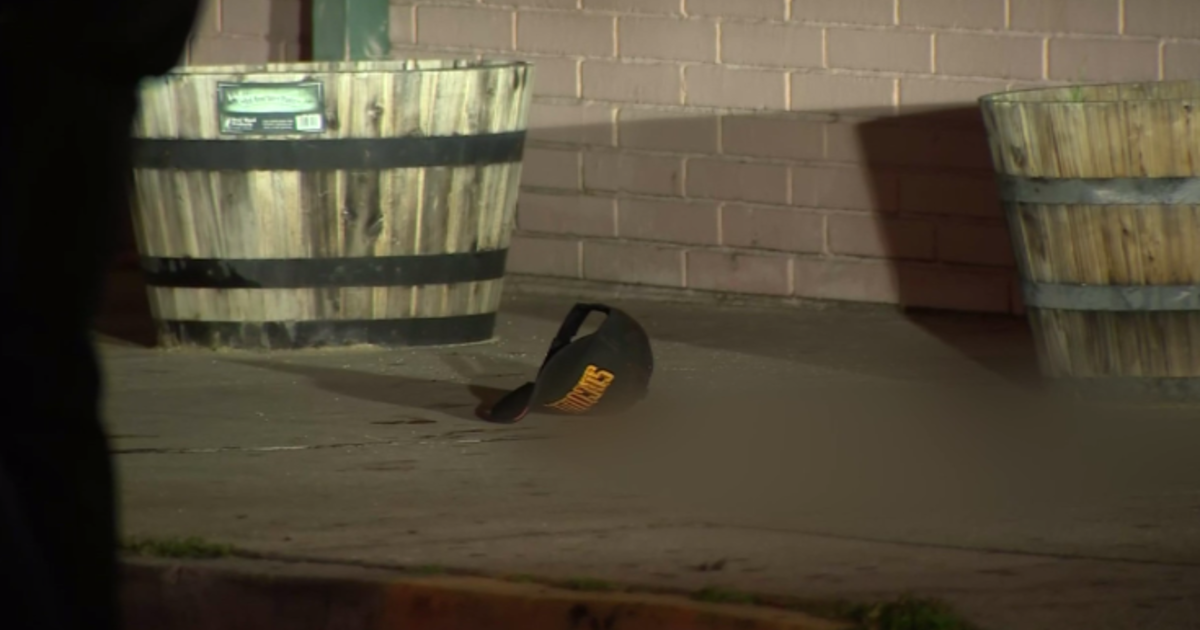Menifee Residents Can Soon Apply For Permits To Build Doomsday Bunkers
LOS ANGELES (AP) — In the backyard of his remote Southern California home, Bernie Jones is etching an unconventional blueprint: a construction plan to build his underground survival shelter. It won't be the typical, cramped Cold War-era bunker. It will hold 20 people.
Part of a small but vocal group of survivalists in Menifee, some 80 miles east of Los Angeles, Jones, 46, has pushed for the right to build a bunker on his 1-acre property for nearly a year. He wants to be ready for anything, be it natural disaster or a nuclear attack.
"The world is taking a change," he says. "I want to be prepared. I want my family to survive."
Residents of the small city once known for its farming and mining can begin applying for permits to build their subterranean housing this month after the City Council passed a hotly contested ordinance allowing the practice.
Americans have been building underground bunkers for decades, their interest in such shelters waxing and waning with current events. Many dug backyard fallout shelters during the Cold War, fearing a nuclear war.
This next generation of bunkers comes as many survivalists face heightened concerns of a terrorist attack, economic meltdown and for some, even solar flares or meteor showers.
"The bunker is a type of security blanket," says Stephen O'Leary, an expert in apocalyptic and end-of-the-world theories at the University of Southern California. "They are concerned with what's happening in the world on a massive scale."
The move to allow below-ground bunkers has created waves among city officials who are concerned with earthquake faults in the area, safety of police and first responders answering emergency calls and the potential for owners to hide criminal activity, such as drug manufacturing.
"Most people are going to use their bunkers for good reason, but you do have some sick people out there," Deputy Mayor Wallace Edgerton says. "Children have been held in bunkers."
Last February, a 5-year-old boy was held hostage for six days in an Alabama underground bunker, which was rigged with explosive devices.
City Councilman Tom Fuhrman calls the ordinance a victory for property rights, not for those looking to break the law. "Criminal activity isn't going to be stopped by not allowing people to build bunkers," Fuhrman says. "A criminal will find a place to commit crime."
There are signs survival bunkers are making a comeback throughout the country.
Ronald Hubbard, who runs Atlas Survival Shelters near Los Angeles, ships his luxury bunkers out of state. Unlike Cold War-era shelters, he builds ones that are half the length of a basketball court and have a master bedroom, dining nook and a couch to watch a 47-inch flat screen TV.
Hubbard says his phones rang nonstop last December as people attempted to prepare for the end of the world that never came. A 5,125-year cycle in the Mayan calendar passed by, sans disaster.
The Perseid meteors soaring through the sky last month had customers calling him constantly, looking for a way to stay safe in case one hit Earth — even though it's an annual celestial event. He insists his customers are practical people — not radical doomsday preppers.
"I'm not fear mongering," Hubbard said, standing beside a $65,000 shelter in his warehouse. "Why do we buy insurance? Just in case."
The Vivos shelter networks in Indiana and Kansas offer the equivalent of doomsday timeshares in underground communities in the event of the apocalypse. The network aims to protect its inhabitants for up to a year from myriad catastrophes, including a nuclear disaster.
Preppers — who dedicate their time to ensuring they are ready for a host of deadly scenarios — even have their own reality TV show.
People should spend time preparing for likely disasters instead of Armageddon, said Steve Davis, president of emergency management company All Hands Consulting.
"In California, you have earthquakes. On the East Coast, you have winter storms," Davis says. "People should be focusing on basic preparedness."
Jones, who has six children and seven grandchildren, says he simply wants to protect his loved ones. The contractor has already stocked his home with medical kits and enough food for his family to survive for about three months should a disaster strike.
He keeps a bag in his truck at all times, packed with five days' worth of food and water, a raincoat, a thermal and "the world's smallest sleeping bag."
"It's all part of being ready for whatever happens," Jones says.
(© Copyright 2013 The Associated Press. All Rights Reserved. This material may not be published, broadcast, rewritten or redistributed.)



